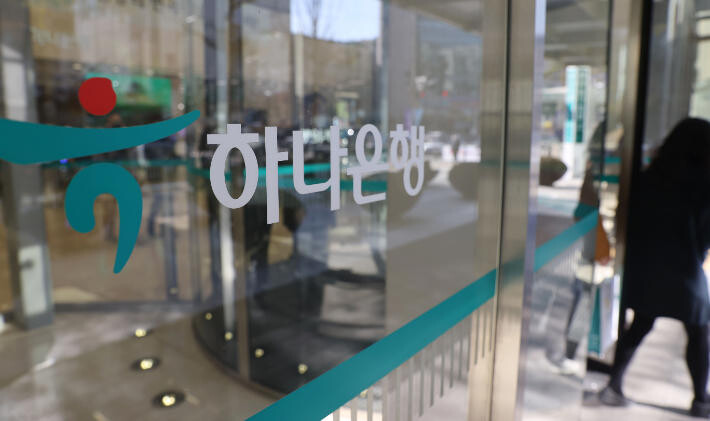
Seoul, South Korea – Hana Bank, one of South Korea's leading commercial banks, disclosed a significant financial incident amounting to ₩35 billion (approximately $25.5 million USD) stemming from an elaborate external fraud scheme. The revelation, made public on April 15th, marks the largest financial mishap reported by the South Korean banking industry thus far in 2025, casting a shadow over the sector's internal controls and risk management protocols.
According to Hana Bank's official filing, the fraudulent activity transpired on April 30th of the previous year. The incident involved a corporate client seeking a substantial balance loan to finalize a real estate acquisition. In the process of securing these funds, the company allegedly submitted fabricated documentation, specifically falsified transfer confirmations for the initial down payment and subsequent interim payments related to the property purchase.
The sophisticated nature of the deception allowed the fraud to go undetected for a considerable period. Hana Bank's discovery of the anomaly was reportedly triggered by a 'major issue report' originating from one of its branch locations. The specifics of this report and the precise mechanisms that led to the identification of the fraudulent documents remain undisclosed by the bank at this time, pending ongoing investigations.
Swift action was taken by Hana Bank upon the discovery of the fraud. The bank immediately initiated measures to mitigate the financial damage. This included declaring a forfeiture of the benefit of time clause against the implicated borrower, effectively accelerating the repayment schedule. Furthermore, Hana Bank moved swiftly to liquidate the collateral associated with the loan. Through the expeditious sale of the pledged assets, the bank announced a remarkable recovery rate of 99.5% of the defrauded amount, limiting the estimated potential loss to a relatively small sum of ₩195.38 million (approximately $142,000 USD).
A spokesperson for Hana Bank stated, "We have already reported this incident to the relevant investigative authorities and are fully cooperating with their inquiries. We intend to pursue all available legal avenues against the perpetrators and will implement further measures based on the findings of the investigation to prevent similar incidents from occurring in the future." The bank has refrained from providing further details about the identity of the involved company or the specifics of the fraudulent documents, citing the ongoing nature of the investigation.
Series of Financial Incidents Plague South Korean Banking Sector in 2025
The Hana Bank fraud is the latest in a troubling series of financial incidents that have plagued the South Korean banking sector in the early months of 2025. This pattern of breaches and malfeasance is raising serious questions about the robustness of internal controls and the overall integrity of the nation's financial institutions.
In January, the Industrial Bank of Korea (IBK) reported a significant ₩23.955 billion case of professional breach of trust involving one or more of its employees. The details surrounding this incident remain somewhat opaque, but the substantial sum involved underscored the potential for significant internal vulnerabilities within even state-backed financial entities.
February witnessed a widespread scandal involving multiple financial institutions, including Korea Development Bank (KDB), KB Kookmin Bank, Shinhan Bank, Standard Chartered Bank Korea, NH NongHyup Bank, and Saemaeul Geumgo. These banks collectively disclosed financial irregularities exceeding ₩10 billion related to Jeonse (lump-sum deposit lease) loans in the Sejong City area. This incident pointed to potential systemic weaknesses in the loan approval and verification processes across various lenders.
The trend continued into March when Shinhan Bank, another major player in the South Korean banking landscape, reported a ₩1.7072 billion financial incident attributed to employee embezzlement. This case highlighted the persistent risk of insider threats and the challenges banks face in preventing and detecting fraudulent activities by their own personnel.
Most recently, prior to the Hana Bank revelation, NH NongHyup Bank disclosed a substantial ₩20.4931 billion financial incident earlier in April. While the specific details of this case are still emerging, the sheer scale of the loss further amplified concerns about the security and oversight mechanisms within South Korean banks.
Implications for Regulatory Scrutiny and Public Trust
The successive occurrence of these significant financial incidents is likely to draw increased scrutiny from regulatory bodies, including the Financial Supervisory Service (FSS). The FSS will likely intensify its oversight of banks' internal controls, risk management frameworks, and compliance procedures to identify systemic weaknesses and enforce stricter preventative measures.
Furthermore, these incidents risk eroding public trust in the stability and integrity of the South Korean banking system. Confidence in financial institutions is paramount for a healthy economy, and a sustained pattern of reported fraud and malfeasance can have far-reaching negative consequences. Banks will need to demonstrate a strong commitment to transparency, accountability, and the implementation of robust safeguards to restore and maintain public confidence.
The Hana Bank fraud, due to its sheer scale, is particularly concerning. The fact that external actors were able to orchestrate such a large-scale deception raises questions about the thoroughness of the bank's due diligence processes and its ability to detect sophisticated fraudulent schemes. While the high recovery rate is a positive development, the initial vulnerability that allowed the fraud to occur in the first place remains a significant issue.
Moving forward, the South Korean banking sector faces a critical juncture. Banks must proactively address the underlying vulnerabilities that have been exposed by these recent incidents. This will require significant investments in strengthening internal controls, enhancing employee training, implementing advanced fraud detection technologies, and fostering a culture of ethical conduct and accountability. The FSS, in turn, must play a vigilant role in ensuring that banks are taking adequate steps to protect themselves and their customers from financial crime. The integrity and stability of the South Korean financial system depend on it.
[Copyright (c) Global Economic Times. All Rights Reserved.]






























